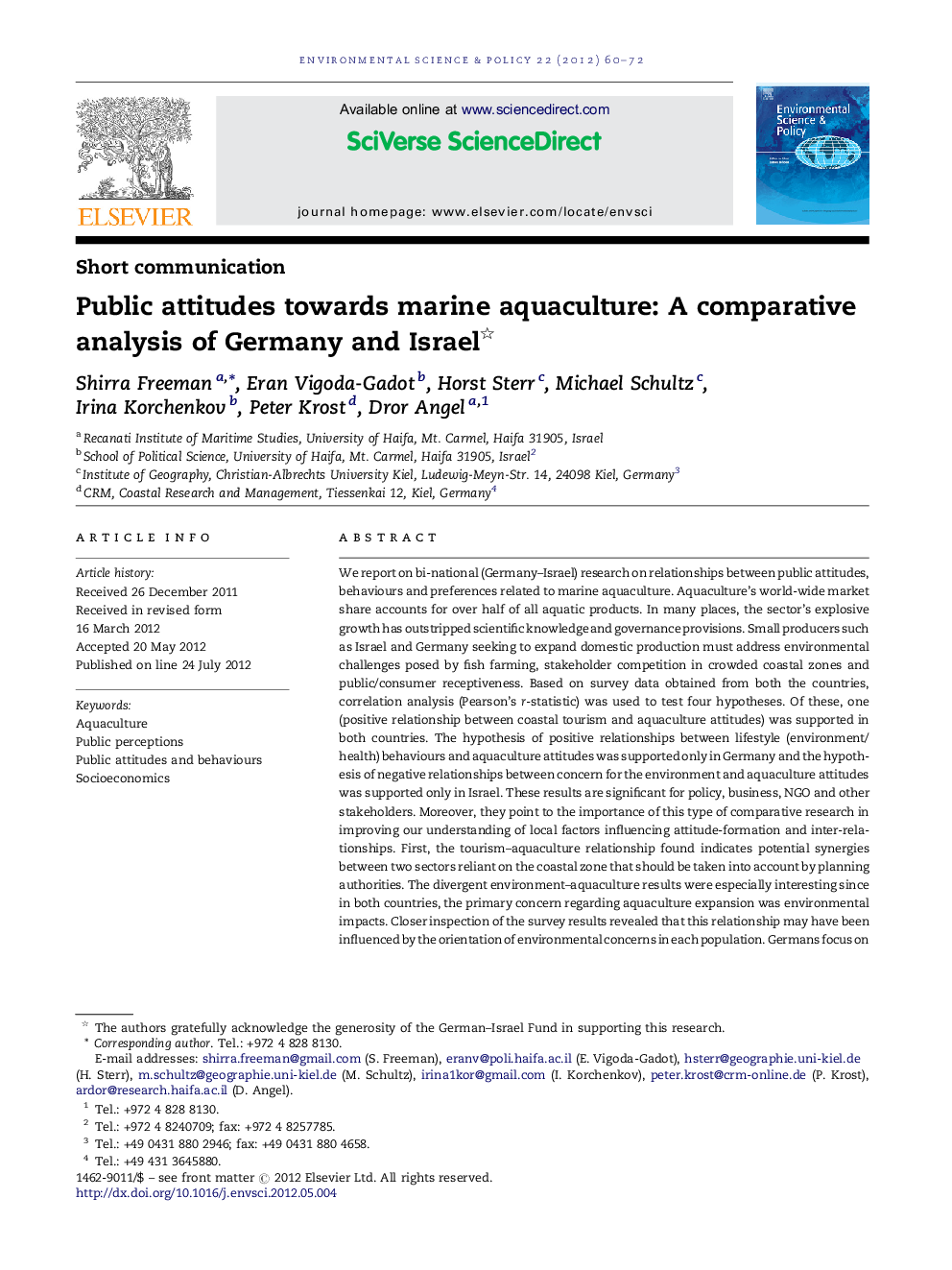| کد مقاله | کد نشریه | سال انتشار | مقاله انگلیسی | نسخه تمام متن |
|---|---|---|---|---|
| 1053726 | 1485084 | 2012 | 13 صفحه PDF | دانلود رایگان |

We report on bi-national (Germany–Israel) research on relationships between public attitudes, behaviours and preferences related to marine aquaculture. Aquaculture's world-wide market share accounts for over half of all aquatic products. In many places, the sector's explosive growth has outstripped scientific knowledge and governance provisions. Small producers such as Israel and Germany seeking to expand domestic production must address environmental challenges posed by fish farming, stakeholder competition in crowded coastal zones and public/consumer receptiveness. Based on survey data obtained from both the countries, correlation analysis (Pearson's r-statistic) was used to test four hypotheses. Of these, one (positive relationship between coastal tourism and aquaculture attitudes) was supported in both countries. The hypothesis of positive relationships between lifestyle (environment/health) behaviours and aquaculture attitudes was supported only in Germany and the hypothesis of negative relationships between concern for the environment and aquaculture attitudes was supported only in Israel. These results are significant for policy, business, NGO and other stakeholders. Moreover, they point to the importance of this type of comparative research in improving our understanding of local factors influencing attitude-formation and inter-relationships. First, the tourism–aquaculture relationship found indicates potential synergies between two sectors reliant on the coastal zone that should be taken into account by planning authorities. The divergent environment–aquaculture results were especially interesting since in both countries, the primary concern regarding aquaculture expansion was environmental impacts. Closer inspection of the survey results revealed that this relationship may have been influenced by the orientation of environmental concerns in each population. Germans focus on depletion of wildstocks and Israelis on cage effluent and marine pollution. Another significant result is the relatively low level of knowledge/understanding about the aquaculture sector among the general public. There is therefore a dual challenge for policy-makers and planners: against the background of broad support for expanding sustainable aquaculture, there is also a need for improved communication of scientific information on aquaculture–environment interactions as well as on the quality and safety of aquacultured products.
► Relationship between attitudes and behaviours related to mariculture are modelled.
► Matched survey tool used to elicit responses in German and Israeli populations.
► Survey results indicate broad support for expansion of environmentally sustainable aquaculture.
► Main inter-country differences stem from issues dominating environmental awareness–marine pollution in Israel and overfishing in Germany.
► Potential synergies between tourism and mariculture observed in both countries.
Journal: Environmental Science & Policy - Volume 22, October 2012, Pages 60–72